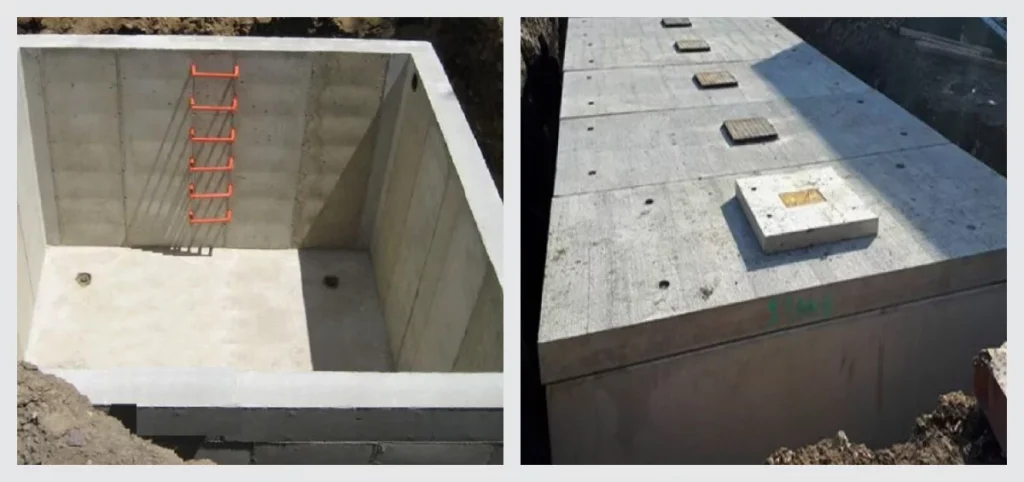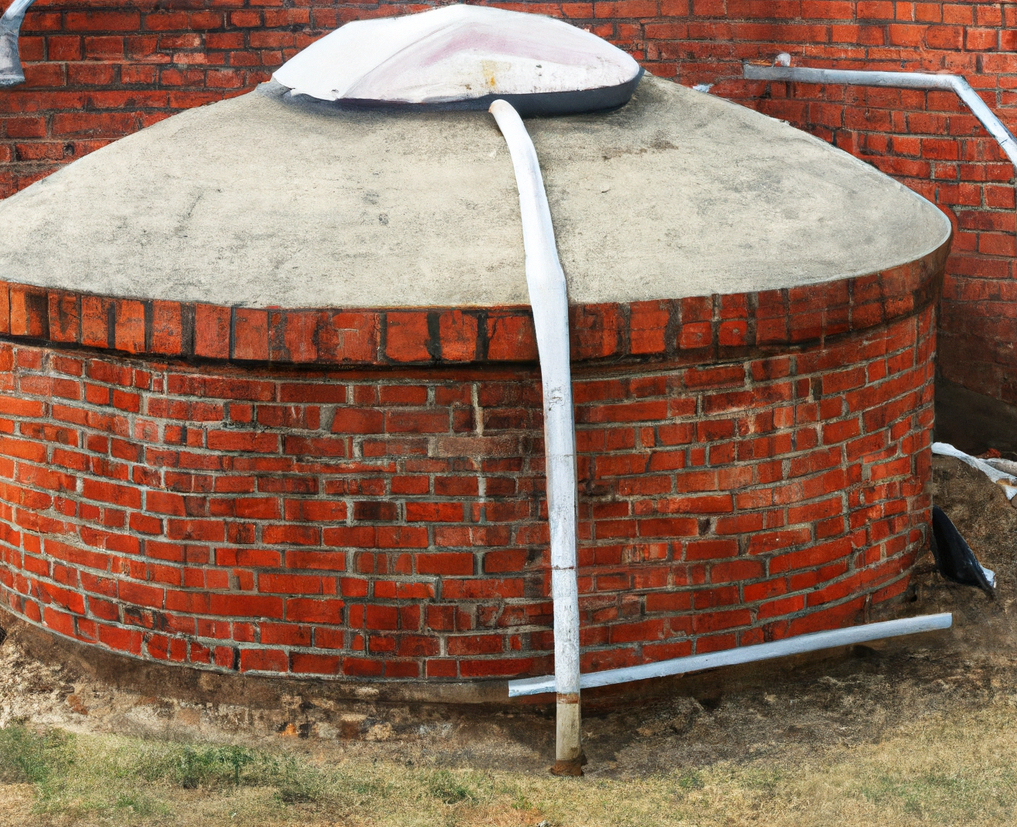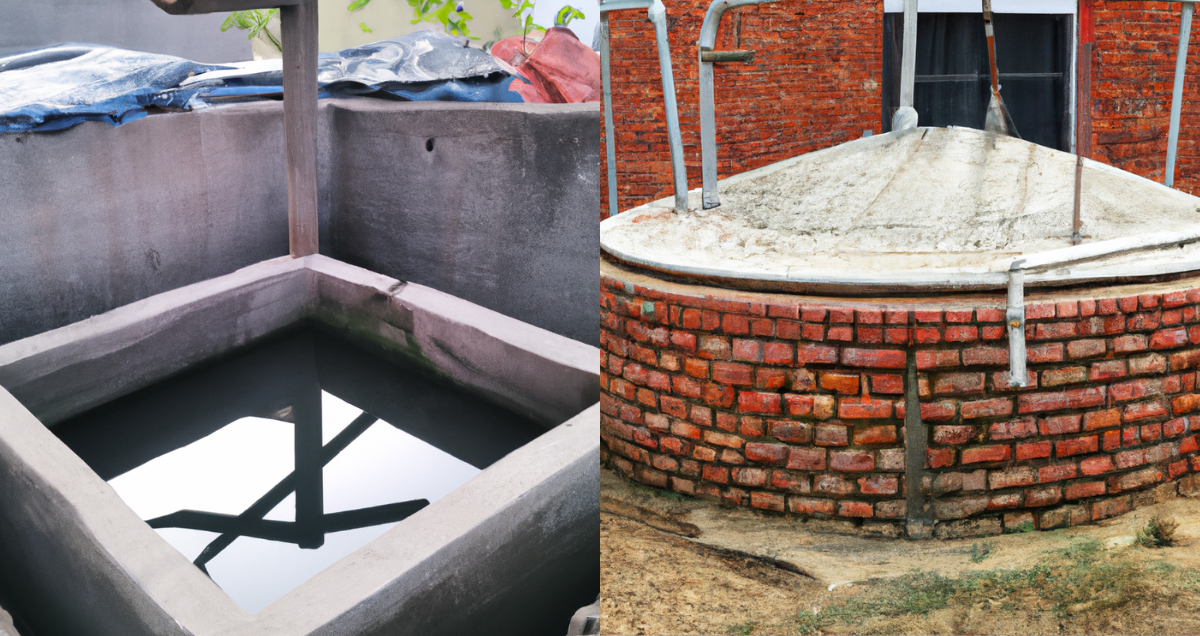As an alternative to conventional brick water tank constructions, the design of reinforced concrete (RCC) water tanks for water retention purposes has gained popularity. The RCC structures offer several benefits such as strength, durability, resistance to weathering, and water resistance.
RCC Water Tank

RCC Water tank is constructed by using a combination of concrete and reinforcement. The bed and walls of the tank are made up of RCC. The concrete is poured into the formwork and allowed to cure, resulting in a strong and durable structure. These tanks can be designed in various shapes and sizes. They are highly impermeable and resistant to seismic movements.
Material used in RCC Water Tank
The materials used in the RCC structures play an important role in strengthening the performance of the structure. Following is the list of materials used in the RCC water tank:
1. Cement is the most commonly used in RCC structures. It is a hydraulic binder that hardens when it reacts with water, producing strong and durable concrete.
2. Aggregates are inert materials that provide bulk and stability to the concrete mix. They consist of fine aggregates like sand and coarse aggregates like crushed stone and gravel.
3. Water is used to activate the cement and produce a hard, durable mass. However, it should be added in a controlled way to avoid excessive shrinkage and cracking.
4. Steel reinforcement is used to provide tensile strength to the concrete so that it can withstand the internal pressure of the water. The type and size of reinforcement used depend on the design specifications and the expected loads on the structure.
Advantages
1. Large-sized water tanks can be easily constructed.
2. It is very much safer than a brick tanks.
3. It is durable and stronger than a brick work tanks.
4. These tanks have large storage capacities.
5. It is safer for seismic activities.
6. It requires very little maintenance.
7. It has a longer lifespan.
Disadvantages
1. They are typical in design.
2. It costs more than a brick work tank.
3. It requires skilled labor for construction.
Brick Water Tank

The brick water tank is constructed by using brick and cement mortar. It involves the proper placement of brick layers one over another and creating a solid watertight structure. These tanks are easy to construct and simple in design. These are not enough strong and durable as RCC storing tanks. These are mostly designed for small storage capacity where water pressure is low.
Advantages
1. They are less expensive than RCC structures.
2. Its design is simple and easy to construct.
3. It does not require highly skilled labour.
4. Easy to maintain as damaged bricks can be replaced without harming the whole structure.
Disadvantages
1. It cannot be used for large water tanks.
2. It cannot withstand high water pressure.
3. They are generally suitable for small capacities not suitable for large water storing capacities.
4. It is not earthquake-proof.
Difference between RCC and brick water tank

The main difference between RCC and brick water tanks lies in the materials used and the construction process.
| RCC Water Tank | Brick Water Tank |
| 1. These are made of reinforced concrete, which is a combination of cement, aggregates, water, and reinforcing steel. | 1. These are constructed using traditional clay bricks and mortar. |
| 2. The concrete is poured into formwork and left to cure, resulting in a strong, durable structure that can withstand high water pressure. | 2. The bricks are laid in a specific pattern with the help of mortar, resulting in a structure that is not enough strong as RCC structure. |
| 3. RCC tanks can be built relatively faster. | 3. Brickwork takes longer to construct compared to RCC structures due to the need for laying individual bricks. |
| 4. RCC water tank have higher strength and durability. | 4. It has low strength as compared to RCC tanks. |
| 5. They are less cost-effective. | 5. There are more cost-effective. |
| 6. Suitable for large water storing capacities. | 6. Suitable for small water storing capacities. |
Conclusion
Whether choosing an RCC or brickwork water tank, the best option will depend on several factors including capacity, project needs, and budget. RCC water tank offer strength, durability, and design flexibility while brick water tanks are more affordable and easy to maintain.
FAQs
Q1: Which type of water tank is more suitable RCC or Brick work?
Both brickwork and RCC water tanks can be suitable for residential purposes, depending on the specific requirements and budget. Brick water tanks are often preferred for smaller capacities, while RCC structures are suitable for larger storage needs.
Q2: Can brick and RCC water tanks be constructed underground?
Both brick and RCC water tanks can be constructed underground, but proper waterproofing measures should be taken to prevent water leakage and seepage.
Q3: Are there any specific maintenance requirements for brick and RCC water tanks?
Brick water tanks require regular inspection for any cracks or damage to individual bricks, which can be repaired by replacing the affected bricks.
Q4: Are concrete water tanks safe?
RCC water tanks are more strong and durable. The use of reinforcement increases the tensile and compressive strength. They are totally impermeable and can resist earthquake movements.
Q5: Can brick and RCC water tanks be constructed underground?
Water tanks made of brick or RCC can be built underground, but in order to stop seepage and leaks of water, appropriate waterproofing techniques must be used.
You may also like to read:
Comparison between Fly Ash Bricks and Red Bricks Types of Steel Reinforcement Properties and Uses Reinforced Cement Concrete Properties, Uses, Advantages |Full Detail| 13 Best Types of Cement For Concrete Mix


